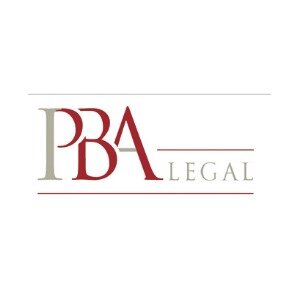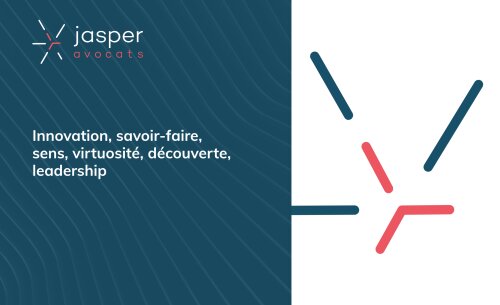Best Criminal Litigation Lawyers in Paris
Share your needs with us, get contacted by law firms.
Free. Takes 2 min.
List of the best lawyers in Paris, France
France Criminal Litigation Legal Questions answered by Lawyers
Browse our 1 legal question about Criminal Litigation in France and read the lawyer answers, or ask your own questions for free.
- Criminal law
- After relocating to France, I have discovered that my daughter was a victim of someone who is serving 15 years. A few years ago, she tried to lodge a complaint in France and Belgium to no avail. The South African Embassy wasn't of help either. I would like to file... Read more →
-
Lawyer answer by Tekin Law Firm
You should file a petition or complaint with the French Chief Public Prosecutor's Office.
Read full answer
About Criminal Litigation Law in Paris, France
Criminal litigation in Paris, France refers to the process of trying a person in a court of law for a crime they are suspected to have committed. The French criminal law system uses an inquisitorial model, which means the court actively investigates the case rather than merely acting as a neutral party. French law categorizes crimes into infractions, delits, and crimes, with corresponding levels of severity and resulting punishments.
Why You May Need a Lawyer
Crime is a serious matter and a guilty verdict could lead to financial penalties, community service, deprivation of certain rights, or even imprisonment. Therefore, it is crucial to have competent legal assistance to navigate the criminal process. You may need a lawyer to provide expert advice, build a strong defense, represent you in court, and ensure the protection of your rights throughout the process. They can also help mitigate the potential consequences by negotiating plea deals with prosecutors.
Local Laws Overview
The French Penal Code outlines most of the country's criminal laws. It criminalizes a wide range of offenses against persons, property, and the state. The code sets forth the principle of legality, which protects individuals from arbitrary prosecution by ensuring that a person can only be convicted for an act that is expressly defined as a criminal offense. France is also part of the European Union, and EU legislation and case law can sometimes apply.
Frequently Asked Questions
How does the French criminal process work?
The process generally begins with a preliminary investigation conducted by the police under the supervision of a prosecutor. If there is sufficient evidence, the case can be forwarded to an investigating magistrate who can further investigate before deciding whether to send the case to trial.
What are the main stages of a criminal trial?
The trial commences with the reading of the charges, followed by the presentation of evidence and witnesses by both the prosecution and defense. Then comes the closing arguments and finally, the verdict and sentencing by the judge.
What are my rights as a defendant?
Under French law, defendants are presumed innocent until proven guilty, have the right to a fair and public hearing, the right to remain silent, and the right to be assisted by a lawyer of their choice.
Can I appeal a criminal conviction?
Yes, a defendant convicted in a criminal trial has the right to appeal the decision. Appeals can challenge both the merits of the conviction and the severity of the sentence imposed.
How long does a criminal case typically last?
The length of a criminal case can vary widely depending on many factors, including the complexity of the case, the amount of evidence, and the court’s schedule. It can range from several months to several years.
Additional Resources
The French Ministry of Justice's website provides abundant materials and guides on various aspects of French criminal law. Local legal aid services can offer assistance to those unable to afford a lawyer. The Paris Bar also provides resources and can refer citizens to qualified criminal lawyers.
Next Steps
If you are facing a criminal charge in Paris, the first step is to find a qualified lawyer who specializes in criminal litigation. A good lawyer can help you understand your legal position, identify potential defenses, explain your options, and represent you in court proceedings. Remember, in such matters, time is of the essence, so it is important to seek legal advice promptly.
Lawzana helps you find the best lawyers and law firms in Paris through a curated and pre-screened list of qualified legal professionals. Our platform offers rankings and detailed profiles of attorneys and law firms, allowing you to compare based on practice areas, including Criminal Litigation, experience, and client feedback.
Each profile includes a description of the firm's areas of practice, client reviews, team members and partners, year of establishment, spoken languages, office locations, contact information, social media presence, and any published articles or resources. Most firms on our platform speak English and are experienced in both local and international legal matters.
Get a quote from top-rated law firms in Paris, France — quickly, securely, and without unnecessary hassle.
Disclaimer:
The information provided on this page is for general informational purposes only and does not constitute legal advice. While we strive to ensure the accuracy and relevance of the content, legal information may change over time, and interpretations of the law can vary. You should always consult with a qualified legal professional for advice specific to your situation.
We disclaim all liability for actions taken or not taken based on the content of this page. If you believe any information is incorrect or outdated, please contact us, and we will review and update it where appropriate.
















